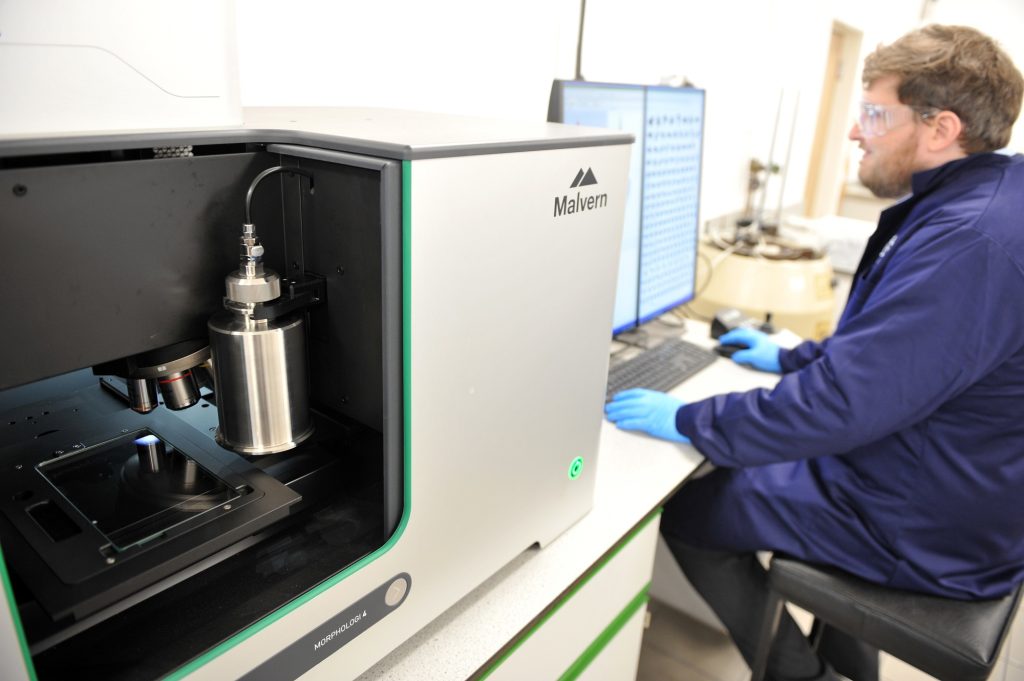The Materials Processing Institute, a UK-based materials research and innovation center, is leading a £600,000 research project to enable greater cost-efficiencies in metal additive manufacturing through a novel artificial intelligence (AI) tool.
The UK-based research institute is collaborating with 3D printing SME Additive Manufacturing Solutions Ltd. (AMS) and additive manufacturing software provider AMFG to develop the AI-powered material reuse management tool.
Called SMART-APP, the tool will offer predictive models for resource efficiency and waste reduction management in Laser Powder Bed Fusion (LPBF) 3D printing.
SMART-APP is being developed to predict quality changes to metal powder after 3D printing. The tool will then propose alternative process parameters for the used powder, extending material lifespan with limited impact to part quality.
It is hoped that the SMART-APP will optimize powder reuse during LPBF 3D printing, making the process more sustainable and cost-effective.
The research project is being funded by Innovate UK, which is part of the UK’s innovation agency UK Research and Innovation (UKRI).
“SMART-APP is the next logical step to continue the work the Institute has already undertaken in powder characterisation. By developing an artificial intelligence tool that can help AM users create faster and cheaper ways of maximizing powder reuse, the AM industry, especially those needing to maximize the operational effectiveness of their machines,” commented Nick Parry, Industrial Digitalisation Group Manager at the Materials Processing Institute.
“This predictive tool will develop and enable world class production of AM components, with smart solutions for resource efficiency and providing longer use of materials feedstock and reducing wastage.”

Optimizing powder reuse with SMART-APP
Reusing metal powder in 3D printing poses challenges. Most metal powders are at risk of surface oxidation, clustering, and porosity formations, which can harm the mechanical properties of the 3D printed part. This has limited powder reuse within additive manufacturing, with medical and aerospace components mainly being produced with virgin material.
The £600,000 funding will enable the project’s partners to conduct advanced materials characterization and mechanical testing. Through this research, the team will investigate the shelf life and processability of environmentally affected stainless steel, titanium, and superalloy base LPBF feedstock.
The research team will also assess different methods of reclaiming the used metal powders, and the effects this has on the final product.
Results will then be fed into an advanced database, which will correlate powder input properties against 3D printed part performance with the help of AI. The resulting predictive tool will be made available for commercial use.
“This initiative aims to transform additive manufacturing towards more resource-efficient methods. SMART-APP aims to instill trust in the additive manufacturing realm by forecasting powder quality and recommending processes to restore desired powder properties for reuse,” explained Alexander Grimmer, Technical Consultant at AMFG.
According to Grimmer, the development of the predictive SMART-APP will “expedite the widespread adoption of additive manufacturing,” and deliver substantial environmental and economic benefits to the 3D printing industry.
Rob Higham, CEO of Additive Manufacturing Solutions Ltd., added that this project marks the first step towards achieving a “ground-breaking approach for dynamic materials management.”

AI enhances metal 3D printing
This is not the first time AI has been leveraged to optimize metal 3D printing.
Materialise, a global leader in 3D printing software and services, offers its Process Control software for metal 3D printing. This software leverages AI to automate the metal 3D printing quality control process, enabling notable time savings and cost reduction.
Materialise Process Control analyzes and correlates layer data in real time during the 3D printing process. This allows users to locate problematic parts before post-processing and quality inspection, which can add 30% to 70% to the cost of making a part. What’s more, early identification of scrap, and root cause analysis, helps to lower costs by reducing material waste and the number of expensive quality control operations needed after processing.
Elsewhere, Berlin-based software company 1000 Kelvin’s AMAIZE software combines AI with physics and manufacturing data to create optimal ‘recipes’ to ensure metal parts are 3D printed correctly the first time. Full commercial availability of AMAIZE was announced at Formnext 2023.
Once a 3D print file is uploaded to the AMAIZE cloud, the AI software analyzes the part and automatically addresses any thermo-mechanical issues by optimizing scan strategy and process parameters. This streamlined approach is said to reduce costs associated with material waste and energy usage.
Subscribe to the 3D Printing Industry newsletter to keep up to date with the latest 3D printing news. You can also follow us on Twitter, like our Facebook page, and subscribe to the 3D Printing Industry Youtube channel to access more exclusive content.
Are you interested in working in the additive manufacturing industry? Visit 3D Printing Jobs to view a selection of available roles and kickstart your career.
Featured image shows powder assessment using morphological analysis being carried out at the Materials Processing Institute. Photo via the Materials Processing Institute.


